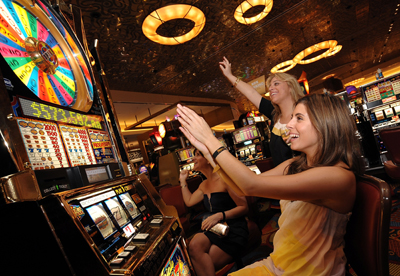
Casino gaming has long been a subject of interest and debate, drawing in millions of players globally. With a mix of chance, strategy, and the thrill of uncertainty, casino games offer an exciting escape from everyday life. However, as entertainment becomes ever more accessible, it invites a deeper examination of the ethical implications surrounding these games.
At the heart of the discussion lies the question of whether casinos promote safe gambling or take advantage of at-risk individuals. The appeal of potential winnings versus the reality of losses can create a challenging situation, and understanding this balance is essential for both players and operators. As we delve into the morals of casino gaming, we will explore the responsibilities of casinos, the impact on society, and the measures that can be taken to foster a better gaming environment.
The Impact of Casino Gaming on Society
Gambling in casinos has a considerable influence on societal dynamics, affecting not only the financial landscape but also interpersonal dynamics and local frameworks. The revenue generated from casinos can lead to employment opportunities and boost regional economies, as they provide multiple employment opportunities in multiple fields including food and beverage, leisure activities, and shopping. However, while the financial benefits can be significant, communities often grapple with the possible negative impacts that arise from increased gambling activity.
Moreover, the presence of casinos can lead to an rise in gambling addiction, presenting serious challenges for individuals and families. The thrill of casino games can quickly transform into a compulsive habit, affecting connections with others and leading to monetary issues. Many individuals may struggle with the loss of control over their gambling habits, resulting in a need for assistance programs and help to address this increasing issue. The social cost of gambling addiction can ripple through families and neighborhoods, creating an urgent need for sensible gambling approaches.
In addition to the economic and social ramifications, casino gaming often reflects cultural attitudes towards uncertainty and leisure. It can foster a sense of excitement and leisure, attracting tourists and boosting local travel. However, this allure may also conceal the wider implications of gambling as a method of entertainment, raising ethical questions about its promotion and availability. As communities weigh the advantages and disadvantages of casino gaming, the need for sensible approaches and regulation becomes increasingly critical in ensuring that the beneficial elements are enhanced while minimizing the negative effects.
Moral Concerns in Betting Activities
The morality of gambling operations often center around the risk for addiction and its effects on individuals and families. Betting can lead to significant monetary distress, impacting not only the gamblers but also their families. As people become entrapped in the allure of winning, many lose sight of their financial limits, which can result in catastrophic results such as insolvency. This poses ethical questions about the responsibility of gambling establishments in fostering safe gambling habits and providing support for those who may be struggling with betting addiction.
Another major concern is the advertising of betting to vulnerable populations. Gambling establishments often target low-income individuals or communities with the promise of fast rewards, which can perpetuate cycles of poverty and despair. In this context, the ethics of advertising strategies used by casinos come under examination, as they may take advantage of the need of people seeking an way out from economic troubles. This manipulation raises ethical questions about the honesty of the betting industry and its responsibility to safeguard its most vulnerable patrons.
Additionally, the impact of casino operations on the community as a entirety cannot be overlooked. While some argue that casinos create employment and boost local economies, others point to the community costs associated with dysfunctional betting, increased criminal rates, and a strain on public services. Balancing financial advantages with the risk for social harm presents a complex moral dilemma for policymakers and casino operators alike. The challenge lies in finding a ethical approach that takes into account the well-being of people and communities while still permitting for the pleasure of gambling activities.
Oversight Framework and Duties
The regulatory framework related to gambling operations is created to ensure equity, trustworthiness, and player safety. Multiple government agencies and gaming commissions set and apply regulations that dictate how casino activities work, the standards for game design, and the processes for processing prizes. These regulations differ by region but usually involve licensing requirements for businesses and rigorous measures to avoid deception and dishonesty.
In furthermore to governing bodies, gaming businesses bear significant accountability in preserving moral standards within their facilities. They must enforce responsible gaming practices that promote gambler safety and consciousness, including providing self-exclusion options and providing information about the dangers connected to gambling. Operators are also responsible for instructing workers to identify signs of problem gambling and understand the correct measures to assist customers in trouble.
Additionally, openness in gaming operations is essential for building and maintaining public trust. FUN88 Gaming establishments should provide clear information about the probabilities of operations, advertising deals, and any associated hazards. By fostering an atmosphere of transparency and accountability, gambling establishments can help lessen the likelihood adverse impact of gaming while boosting the overall gaming experience for all participants.
